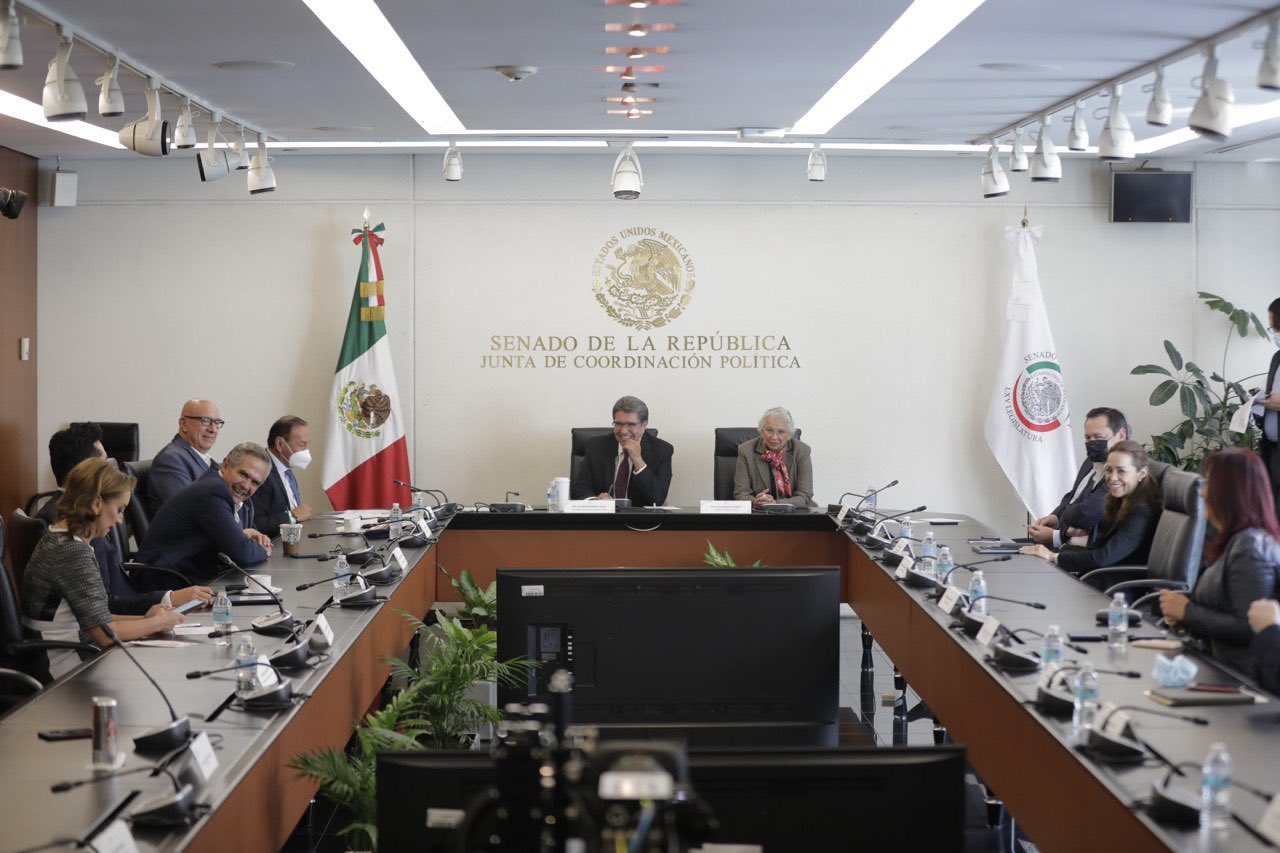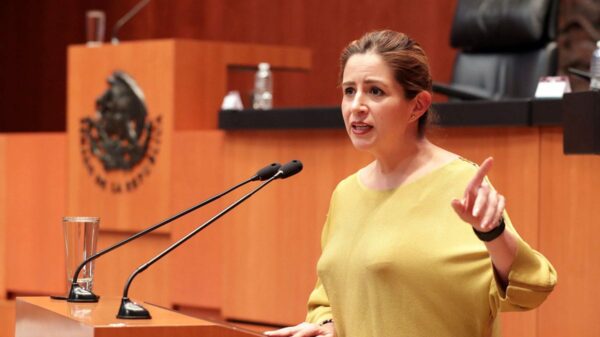Mexico’s top lawmakers continue to reassure the country’s long-delayed cannabis law will be approved by the end of December, when the current legislative period ends. Meanwhile, activists are trying to take the matter into their own hands by proposing bylaws for consuming pot in public spaces.
On Monday, Senator Ricardo Monreal Avila of the ruling Morena party said during a Political Coordination Board meeting he and his colleagues agreed to prioritize the cannabis law, and their intention is to approve it next month.
But this isn’t the first time the politician has expressed intentions to move forward with the legislation.
Last month, Monreal said in a statement that legalization would lead to record expungement for people charged with minor cannabis offences, and how cannabis could bring in tax revenue of $1.1 billion.
In September, Senator Julio Ramon Menchaca Salazar said during a plenary meeting that the cannabis law would be finalized in the next period of legislative sessions, after the Health Commission discusses the bill.
En reunión de la Jucopo, acordamos priorizar las leyes de cannabis, catastro y registro, movilidad, ciberseguridad, economía circular y Código Nacional de Procedimientos Civiles y Familiares. El propósito es aprobarlas en este periodo de sesiones. pic.twitter.com/shwrnZpsm9
— Ricardo Monreal A. (@RicardoMonrealA) November 8, 2021
Read more: Mexican Supreme Court minister proposes criminalizing simple possession of cannabis
Read more: Mexico’s cannabis law a priority in upcoming legislative discussions, senator says
Activists propose ‘social’ regulations for smoking in public spaces
On Nov. 4, prominent activist group Plantón 420 organized a peaceful demonstration where cannabis activists walked from the Supreme Court to Congress to remind lawmakers that their rights are not yet being met.
“At the federal level, we still have no response to our four basic human rights demands. So we are thinking to continue to freely exercise our right to peaceful protest, cultivating and smoking quietly as we have done since 2019,” reads a recent statement by the group.
The activist group explained that without a modification to Mexico City’s Law of Civic Culture, police can detain anyone who uses cannabis, despite the Supreme Court declaring weed use isn’t a criminal act.
The statement also mentions how cannabis consumption is more “scandalous” at a social level, while having medical properties and being less dangerous than tobacco.
“We receive this unfair and unworthy treatment by the law, and simply because people don’t like the way the plant smells or the idea of consuming it, as well as stigmas and prejudices of a ‘stoner getting high’ and not because the person is infringing upon their rights.”
Plantón 420 proposed the following eight guidelines for responsible cannabis consumption in public spaces:
- represent the responsible use of cannabis to avoid perpetuating negative stigmas around users;
- use designated smoking areas such as tobacco consumption areas;
- no smoking around children or playgrounds;
- be aware of the smoke emissions to avoid bothering others;
- no selling or buying cannabis in public spaces;
- don’t throw roaches to the ground and keep consumption spaces clean;
- don’t expect people to share or gift cannabis as Covid rates are still high; and
- use your forearm to cover your mouth when coughing in a consumption area.
Read more: Mexican Supreme Court ends weed prohibition, effectively decriminalizes personal use
Read more: With newly elected legislature, more delays expected in passing Mexico’s cannabis law
Since 2018, the Supreme Court declared cannabis consumption a human right, and demanded lawmakers make a law, a process that has been missed several deadlines.
In lieu of legal cannabis legislation, ministers modified articles from the general health law to eliminate the administrative prohibition of cannabis and enacted a declaration of unconstitutionality on July 15.
Among the modifications, Mexican citizens must now get a permit from the Federal Commission for the Protection Against Health Risks (COFEPRIS) and if not, they are subject to arrest and prosecution.
Correction (2021-11-15 9:12 am): A previous version of this story referred to Ricardo Monreal Avila as the president of the Senate, but he is the president of the Senate Political Coordination Board.
Follow Natalia Buendia Calvillo on Twitter
natalia@mugglehead.com













